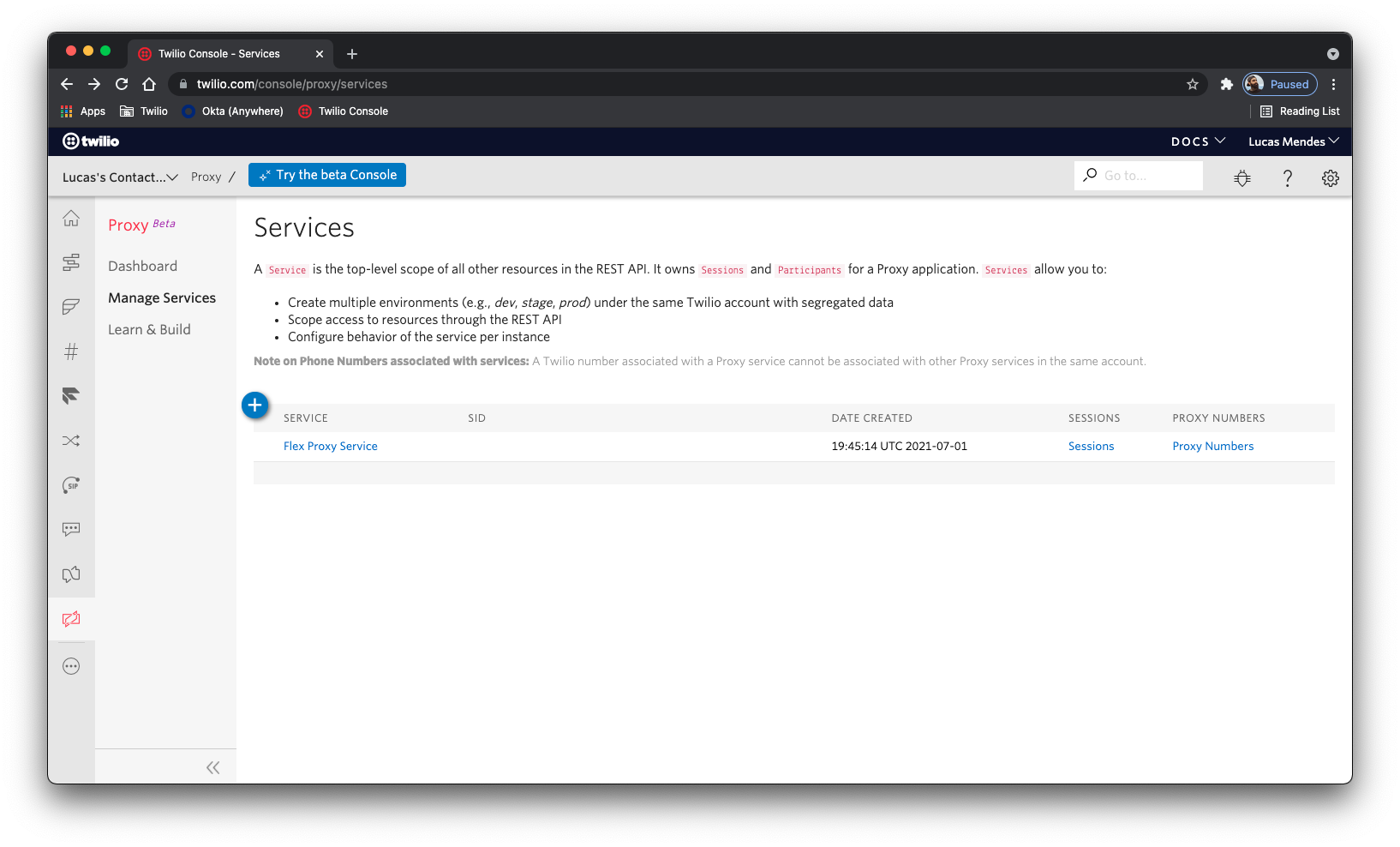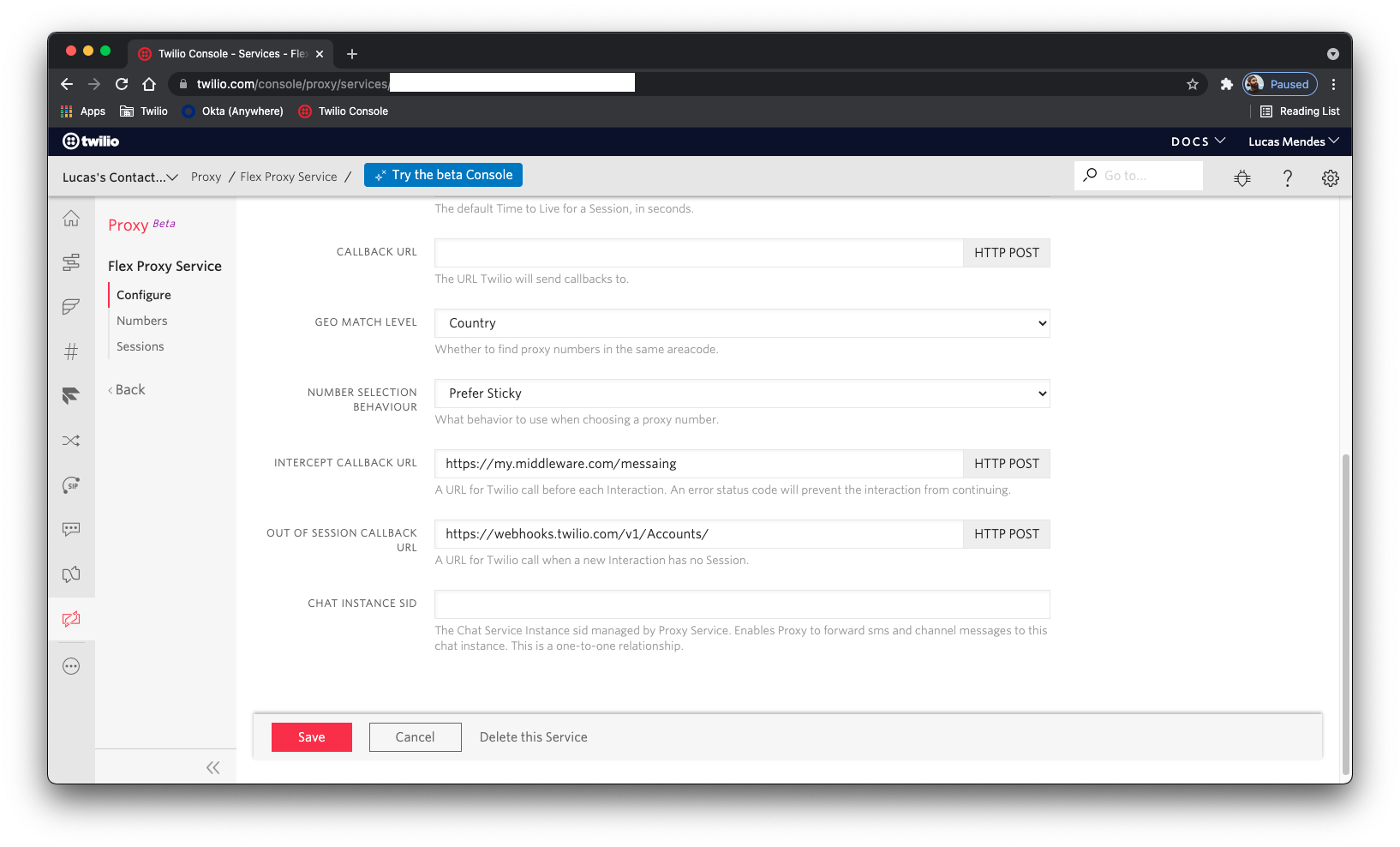This project is a simple NodeJS application that is aimed to be used as a middleware to catch and log message details using the Intercept Callback URL on Twilio Proxy. This project can be used as a base project to catch these messages and save it on an external location, get informational logs and so on.
- NodeJS 16.4 or greater
- NPM 7.18 or greater
The first thing you need to do, is to clone this repository and setup it locally on a webserver.
git clone https://github.com/devsdmf/simple-messaging-middleware.git
Now you need to install the project dependencies using NPM:
cd /path/to/the/project
npm install
The project uses the Twilio SDK for NodeJS, and it needs the account credentials in order to fetch some additional information from the Twilio services, so, the easiest way to configure this credentials is to clone the sample .env file and update it with your account values.
cd /path/to/the/project
cp .env.sample .env && edit .env
The .env file should have the both TWILIO_ACCOUNT_SID and TWILIO_AUTH_TOKEN variables.
The project offers an npm script to easily start the development server (npm start) but if you want, you can also execute the app.js source directly.
If you don't want to deploy it on a webserver or just want to play with the code, you can use ngrok to expose a local tunnel from your machine to the internet.
As soon as you have a public accessible URL, go ahead to your Twilio Proxy Services, and select the service you want the middleware to be attached to.
Then on the Proxy Service details screen, fill the INTERCEPT CALLBACK URL field with the URL and endpoint for your service, i.e.: https://my.middlware.com/messaging
That's it, now just save your changes on this screen and you are ready to go!
The middleware code is pretty simple, the idea is to receive the Twilio Proxy's events and do something with that information. By default, the script only writes a log to the STDOUT, but you can change the saveMessage method in order to accept more information, and do something else with that information, i.e., saving in a database, send it to a queue or just log the messages to an external log aggregator.
This software is to be considered "sample code", a Type B Deliverable, and is delivered "as-is" to the user. Twilio bears no responsibility to support the use or implementation of this software.
This project is licensed under the MIT license, that means that it is free to use, copy and modify for your own intents.

